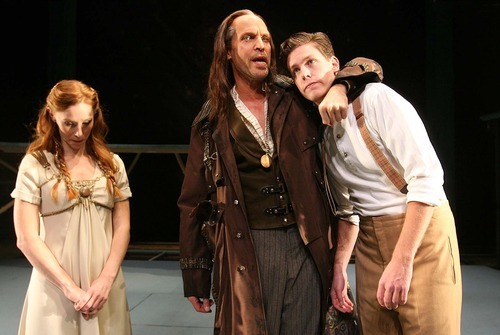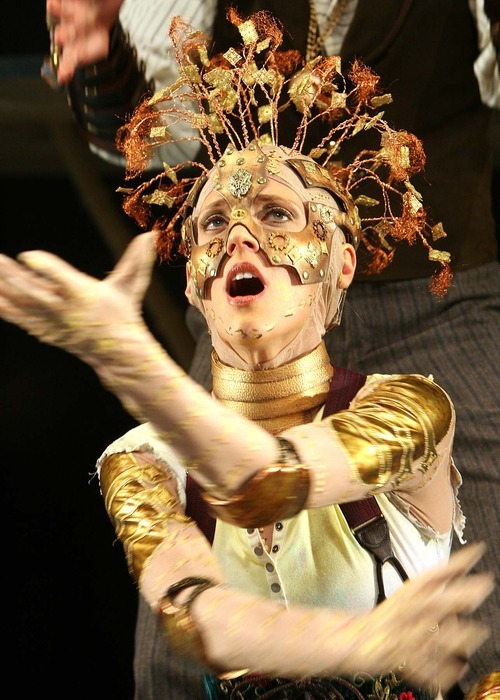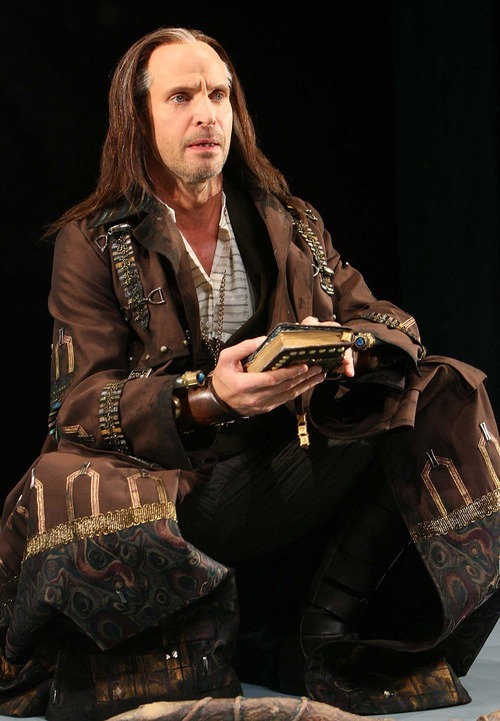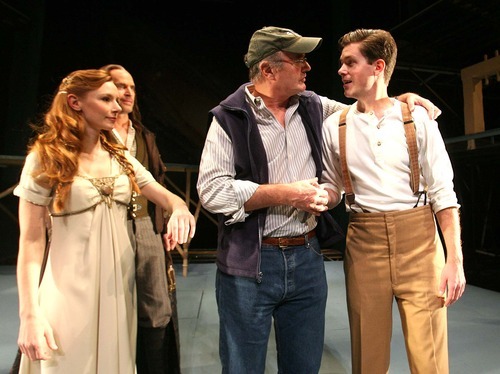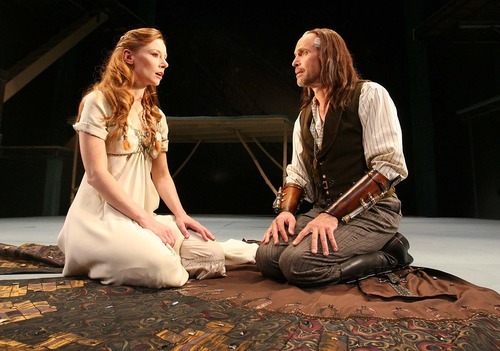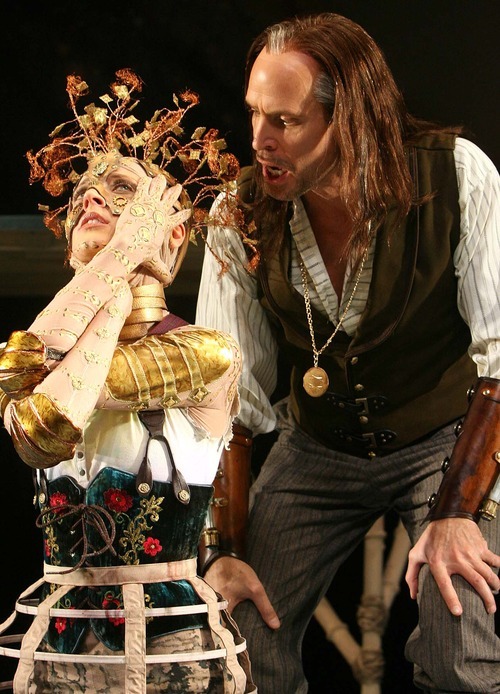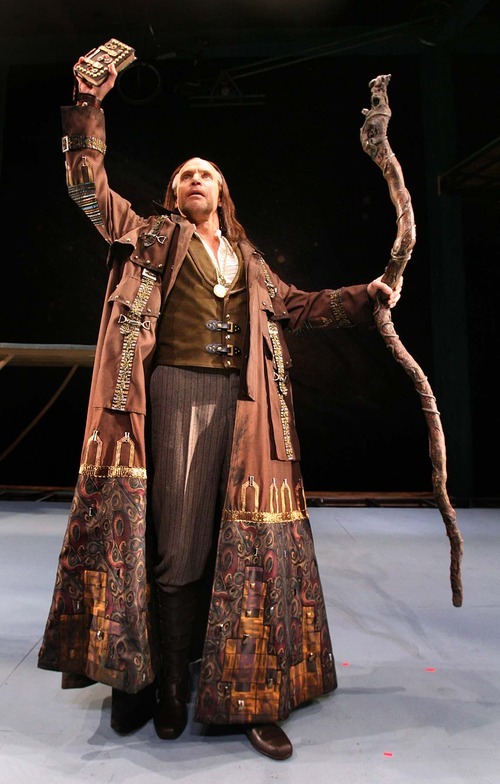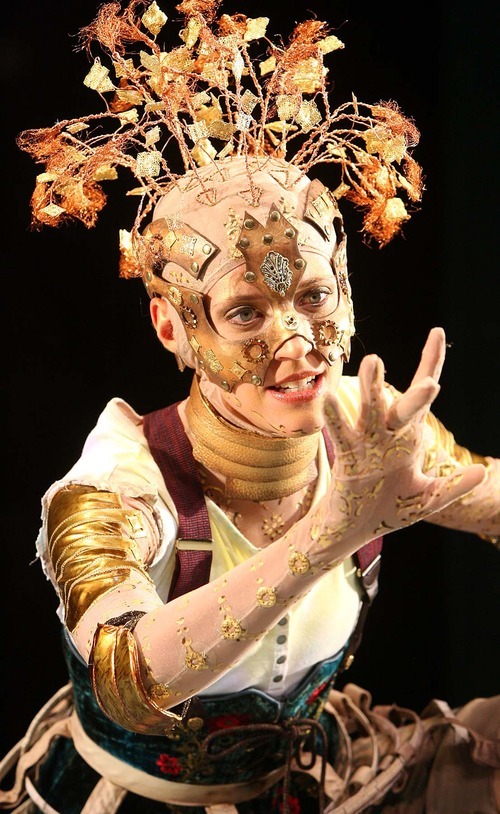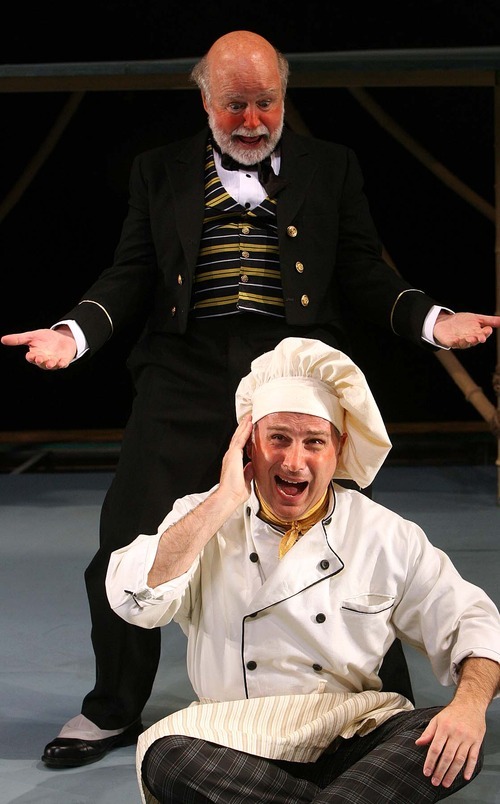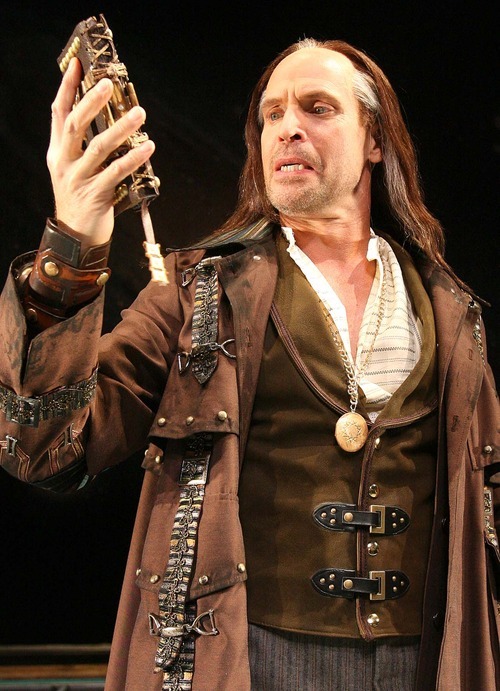This is an archived article that was published on sltrib.com in 2011, and information in the article may be outdated. It is provided only for personal research purposes and may not be reprinted.
"The Tempest," Shakespeare's storm-tossed play about an Italian duke banished on an exotic island, has undergone so many updates that it might be considered the iPhone of the Bard's 38 plays.
Shakespeare's island became planet Altair-4, with a Dr. Morbius substituted for Prospero, in Fred McLeod Wilcox's 1956 film Forbidden Planet. Director Derek Jarman spliced and diced it, tagging a gay-themed fantasia ending onto his 1979 film version. Director Peter Greenaway lavished it with visual excess in 1991's Prospero's Books. Most recently, Julie Taymor cast Helen Mirren as the central character Prospera, a duchess to Prospero's duke.
So wild are the liberties that have been taken that Charles Morey, artistic director of Pioneer Theatre Company, would have been well within his rights to swing back toward tradition directing his own production. Instead, he charted a course faithful to Shakespeare, but also true to the places in his own heart where "The Tempest" resides.
Simply put, it's his favorite among Shakespeare's works. "I'd direct any other great Shakespeare play in an instant, but no other has the humor and joy that suffuses this one," Morey said. "For me 'The Tempest' is about peace, joy and being at one with the world. It actually gives you the illusion, for a few moments, that you might even be at peace with yourself."
Morey has little or no time for the play's subtext of colonial oppression of indigenous peoples through the relationship between magician Prospero and native Caliban, a favorite angle of late-20th-century productions. For him, the play has always spoken to the human need to control the world and other people, coupled with the equally pressing need for grace and forgiveness when we humans let go of those attempts at control.
Rather than cast a lavish island atmosphere over the work, Morey worked with guest set designer Gary English to unveil a stage design counterintuitive to what the play would seem to require. Morey asked for a backstage environment from Edwardian-era England, created onstage so that audiences could see every naked banister, every rope pulled and every prop laid bare.
Craig Wroe, who plays Prospero in this production, said the cast was held rapt when Morey showed sketches of the set during a preliminary meeting. "Our jaws dropped," Wroe said. "It was so original, and so right for the play."
Morey said that given the play's fecund allusions to the nature of theater, he wanted a "theater machine," so to speak, that made everything obvious. Going low-tech emphasized the theater itself as its own kind of magic.
Morey's passion for the work, along with that unique set, has revealed more meaning and nuance with every rehearsal, said Utah-based actor Paul Kiernan, who plays Caliban. "A bare stage is an island, too," Kiernan said. "It's a really grounded sense of magic, rather than special effects."
"The Tempest" has long been viewed as Shakespeare's swan song, being the last work he wrote alone.
But the play's wealth of allusions to the nature of theater, as Prospero manipulates the other characters through magic while watching over daughter Miranda, are a mere plus, Morey said. So, too, is the fact that Morey has selected the play as part of his final season, after 28 years, as PTC's artistic director.
"More significant for me is that it was the first Shakespeare play I directed for the theater 26 years ago," More said. "I simply wanted to direct it once more."
Twitter: @Artsalt; facebook.com/nowsaltlake —
Stormy weather
P Pioneer Theatre Company presents William Shakespeare's "The Tempest."
When • Oct. 21-Nov. 5. Mondays-Thursdays, 7:30 p.m.; Fridays, 8 p.m.; Saturdays, 2 and 8 p.m.
Where • Simmons Pioneer Memorial Theatre, 300 S. 1400 East, University of Utah campus, Salt Lake City.
Info • $25-$49; at 801-581-6961 or http://www.pioneertheatre.org


